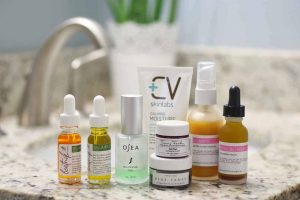
In recent years, there has been a growing trend towards organic skincare products as people become more conscious of the potential harm that chemicals and artificial ingredients can cause to their skin and overall health. Transitioning from traditional skincare to organic skincare can be a daunting task, but with the right knowledge and guidance, it can be a rewarding and beneficial journey. In this article, we will explore the steps you can take to transition from traditional to organic skincare, incorporating the latest technology and real-life examples to guide you along the way.
I. Understanding the Benefits of Organic Skincare
Organic skincare products are derived from natural and plant-based ingredients, free from harsh chemicals, artificial fragrances, and synthetic additives. This shift towards natural ingredients offers numerous benefits for your skin and overall well-being. Here are some key advantages of organic skincare:
- Nourishing your skin naturally: Organic skincare products are rich in essential vitamins, minerals, and antioxidants that nourish and replenish your skin, promoting a healthy complexion.
- Reducing the risk of irritation and allergies: Artificial ingredients and chemicals found in traditional skincare products can cause irritation and allergic reactions. By switching to organic products, you minimize the risk of such unpleasant side effects.
- Environmental sustainability: Organic skincare products are often made from sustainably sourced ingredients, minimizing the negative impact on the environment. By supporting organic brands, you contribute to a greener and cleaner planet.
II. Identifying Organic Skincare Products
Transitioning to organic skincare begins with identifying the right products for your skin type and concerns. Here are some steps to help you choose organic products effectively:
- Research reputable organic brands: Start by researching and familiarizing yourself with reputable organic skincare brands. Look for certifications such as USDA Organic or Ecocert, which ensure the products meet specific organic standards.
- Read labels and ingredient lists: Take the time to read product labels and ingredient lists carefully. Look for natural and organic ingredients such as aloe vera, shea butter, jojoba oil, and herbal extracts. Avoid products that contain parabens, sulfates, phthalates, and synthetic fragrances.
- Seek recommendations and reviews: Seek recommendations from friends, family, or beauty experts who have already made the transition to organic skincare. Additionally, read online reviews to gain insights into other users’ experiences with specific products.
III. Incorporating Technology in Organic Skincare
Technology has greatly influenced the beauty industry, including organic skincare. Here are some ways to incorporate technology into your organic skincare routine:
- Smart skincare devices: Many beauty brands now offer smart devices that enhance the effectiveness of organic skincare products. For example, facial cleansing brushes and LED light therapy devices can optimize the absorption of organic serums and moisturizers, providing better results for your skin.
- Skincare apps: Several skincare apps are available to help you track your skincare routine, offer personalized product recommendations, and provide valuable tips on maintaining healthy skin. These apps can be a useful tool in your transition to organic skincare.
- Online resources and communities: Utilize online resources such as blogs, forums, and social media platforms to connect with like-minded individuals who are passionate about organic skincare. These communities can provide valuable insights, tips, and product recommendations.
IV. Real-Life Examples and Celebrity Quotes
- Miranda Kerr, founder of KORA Organics: “My passion for organic skincare stemmed from wanting to find a skincare range that delivered the results I desired but was also healthy and free from harmful chemicals.”
Miranda Kerr’s organic skincare brand, KORA Organics, showcases the effectiveness of organic ingredients in achieving radiant and healthy skin.
- Jessica Alba, founder of The Honest Company: “My goalis to create safe, effective, and affordable products for every family.”
Jessica Alba’s brand, The Honest Company, emphasizes the importance of using organic and non-toxic ingredients in skincare products, catering to a wide range of consumers.
Conclusion
Transitioning from traditional to organic skincare is a positive step towards healthier and more sustainable skincare practices. By understanding the benefits of organic skincare, identifying reputable brands, incorporating technology, and learning from real-life examples, you can embark on this journey with confidence. Remember, skincare is a personal and evolving process, so don’t be afraid to experiment and find what works best for your skin. Embrace the power of nature and enjoy the nourishing benefits of organic skincare for a radiant and vibrant complexion.















